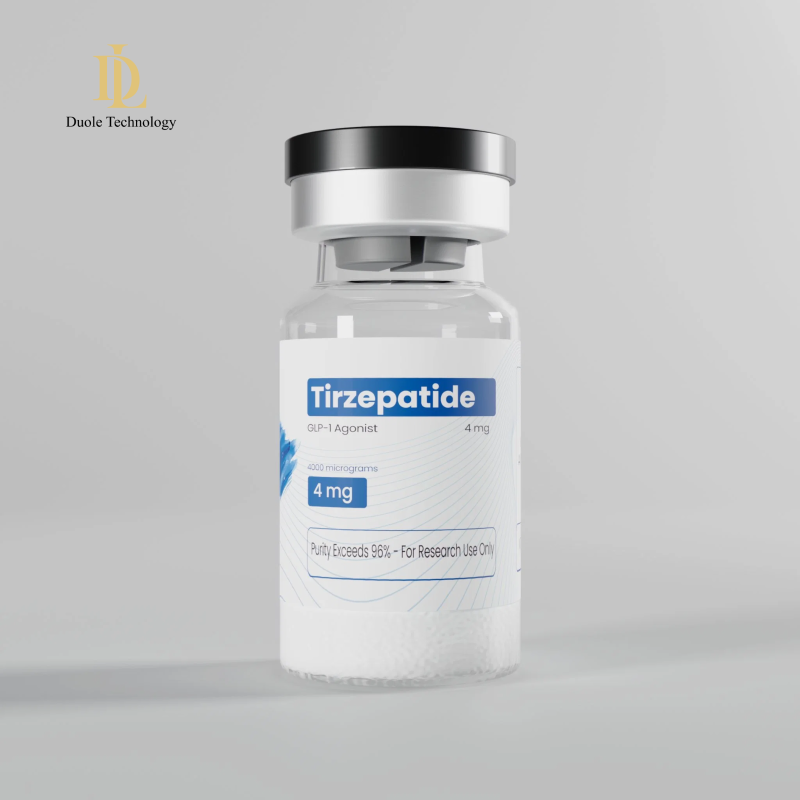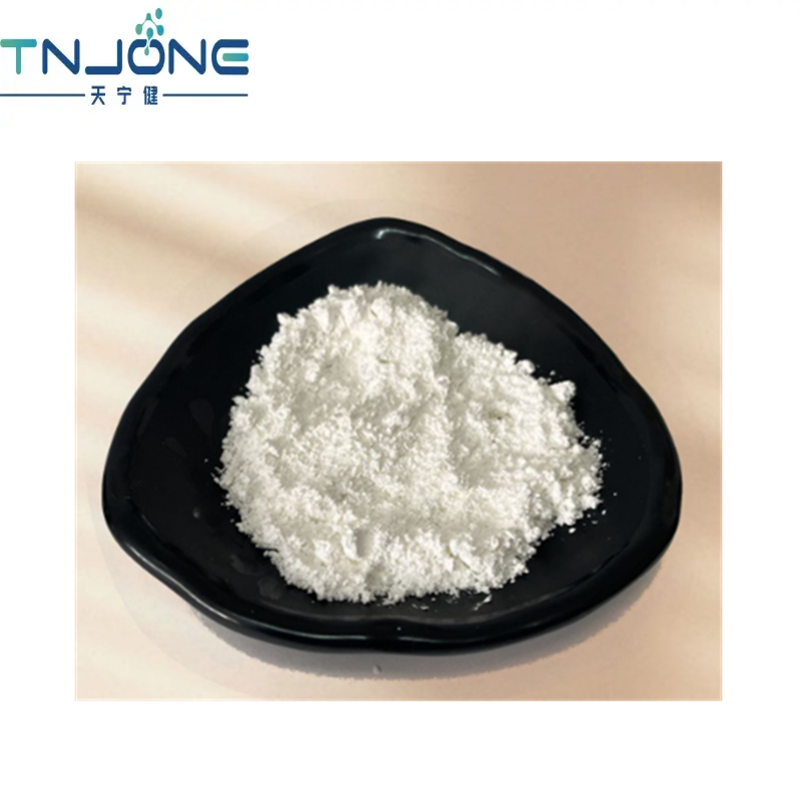Drug prices soared a big push, the monopoly of APIs another case!
-
Last Update: 2017-02-15
-
Source: Internet
-
Author: User
Search more information of high quality chemicals, good prices and reliable suppliers, visit
www.echemi.com
Source: e drug Manager: on February 15, 2017, a news released on the website of the national development and Reform Commission that a drug enterprise in Shandong Province was fined 120000 yuan for obstructing the anti-monopoly investigation caused hot discussion again In recent years, pharmaceutical companies have reflected the problem of API price increase, which is also the focus of the game between pharmaceutical companies and upstream API companies In the proposal of "two sessions" in 2017 being collected by China Pharmaceutical Enterprise Management Association, the price control of APIs is still a key issue of concern in the industry The protagonist of this event is Weifang longshunhe Pharmaceutical Co., Ltd (hereinafter referred to as "longshunhe") According to the public information, on August 10, 2016, the national development and Reform Commission (NDRC) price supervision and inspection and Anti-monopoly Bureau, together with the price bureau of Shandong Province, formed a joint investigation team to carry out anti-monopoly investigation on longshun and the suspected price monopoly of APIs However, in the process of law enforcement, longshun and the staff obstructed It is reported that law enforcement officers were blocked by Jiang Mou, the company's business manager, when conducting investigation and evidence collection, throwing the U-disk collected by law enforcement officers out of the door, and also obstructing law enforcement officers from looking for the U-disk According to the relevant provisions of the antimonopoly law, the price bureau of Shandong Province imposed a fine of 120000 yuan on longshun and his behavior of hindering the antimonopoly investigation At present, the fine has been implemented The serious monopoly of APIs is not a case in point In fact, in recent years, there are many cases of monopoly of API in China, such as estazolam Earlier, three companies, Huazhong pharmaceutical, Shandong Xinyi and Changzhou siyao, reached a monopoly agreement on the API and tablet, which was finally punished by the national development and Reform Commission, with a total fine of more than 2.6 million yuan; Such as allopurinol tablets, Chongqing Qingyang, Chongqing Datong, Jiangsu World Trade Tianjie, Shanghai Xinyi Union, Shangqiu Huajie and other five companies earlier implemented a unified price monopoly agreement on the API In 2016, the national development and Reform Commission punished five companies with a total fine of nearly 4 million yuan; Another example is promethazine hydrochloride In June 2011, Shandong Weifang Shuntong Pharmaceutical Co., Ltd and Weifang Huaxin Pharmaceutical Trading Co., Ltd signed an exclusive agency agreement with two promethazine hydrochloride manufacturers respectively By controlling the source of raw materials, they monopolized the sales of promethazine hydrochloride in China, raising the sales price from less than 200 yuan per kilogram to 300 yuan to 1350 yuan Finally, the two companies It was punished by the price supervision, inspection and Anti-monopoly Bureau of the national development and Reform Commission with confiscation of illegal income and a fine of 7 million yuan In addition to the national development and Reform Commission, the State Administration for Industry and Commerce has also taken action Not long ago, the State Administration for Industry and Commerce announced a number of drug monopoly cases For example, on January 11, 2017, Hubei Provincial Administration for Industry and Commerce imposed administrative penalties on the parties involved in the case of abuse of market dominance by Wuhan Xinxing elite Pharmaceutical Co., Ltd.; on November 24, 2016, the State Administration for Industry and Commerce imposed an administrative penalty on the allopurinol drug monopoly of Chongqing Southwest Pharmaceutical Co., Ltd An administrative penalty shall be imposed for a broken act These are just the tip of the iceberg of serious monopoly of API in China According to public reports, Li Qing, deputy director of the price supervision and inspection and Anti-monopoly Bureau of the national development and Reform Commission, once disclosed that there are 1500 kinds of APIs in China, of which only one enterprise has obtained the approval qualification to produce 50 kinds of APIs, only two can produce 44 kinds of APIs, and only three can produce 40 kinds of APIs Even in a sample survey, it was found that one API corresponds to 169 preparation enterprises at most Behind monopoly, it is true that the most direct consequence of monopoly is the price rise Earlier, Geng Funeng, chairman of gooddoctor pharmaceutical, also said that "now, there is a monopoly problem in the pharmaceutical industry in China, especially in the field of APIs Some commercial companies hold several drug approval numbers in their hands, making the drug price increase several times or even ten times from the beginning of raw materials." As for digoxin tablets, public information shows that since September 2014, the raw material price of digoxin tablets has gradually increased from 75000 yuan per kg to 400000 yuan per kg in January 2015 The varieties of API price increase exposed by media include propranolol hydrochloride, oryzanol tablets, vitamin B2, etc However, behind the price increase of some kinds of preparations is considered to be the rise of API price In the case of estazolam monopoly, after several enterprises reached a monopoly agreement, the price of API of 1mg * 20 estazolam tablets has increased several times since 2015 There was also feedback from patients that they had bought a bottle of estazolam tablets for more than one yuan, which rose to 20 yuan at the beginning of 2016 The head of a well-known domestic pharmaceutical enterprise said that some enterprises will reach a certain monopoly tacit agreement through strategic alliance, which is only a few There are many factors that lead to the monopoly of API Market and the price rise of API Firstly, due to the high technical threshold and low profit, many enterprises are reluctant to reproduce some APIs At the same time, with the internationalization trend of preparations of domestic pharmaceutical enterprises, many enterprises are reluctant to do bulk API production Secondly, the information asymmetry between the drug approval agencies and the actual situation of the market "In the past, China's market access threshold for APIs was low, which was a situation of excessive competition In the specific practice, the examination and approval department thinks that the batch number on the market is enough, and the batch number is not approved artificially But in fact, as the entry threshold is higher and higher, those with batch number may not be able to be produced " Third, relevant laws and regulations, environmental assessment and registration standards are improved After the implementation of the new environmental protection law in 2016, the environmental protection indicators are more and more strict, and the environmental protection investment of enterprises continues to increase, which directly drives the cost rising However, it is difficult for enterprises with poor profitability to maintain normal operation, and API manufacturers that can meet the requirements of environmental protection indicators are becoming rare, which makes the competition pattern gradually tend to be centralized, or even lead to monopoly In addition, there are industry analysis, low-cost drugs due to low prices, low profits, many enterprises are reluctant to produce, more likely to lead to monopoly Take the monopoly case of estazolam, a low-cost drug, as an example At that time, there were only four enterprises in China that obtained the approval for production of estazolam API, and only three enterprises were actually in production A big driver of soaring drug prices? The monopoly of API means that API enterprises have more and more control over the downstream pharmaceutical market, which leads to the game between downstream pharmaceutical enterprises and API enterprises Especially in the center of the drug price storm, the rise in the price of APIs is considered to be a big driver to push up the price of some drugs Some pharmaceutical enterprises in the lower reaches have been crying out for the fact that the monopoly of APIs is serious and pharmaceutical enterprises can only be controlled by others in terms of price However, according to the opinion of a API enterprise in China, there are two factors for downstream pharmaceutical enterprises to complain about the price rise of API "On the one hand, pharmaceutical enterprises are used to eating cheap things, and now domestic technology and laws and regulations are tightening The price rise brought by this is actually the return of value, and some pharmaceutical enterprises have not yet adapted to it; on the other hand, pharmaceutical enterprises are also facing the pressure of bidding, which is difficult to digest, which is also a pass on of the pressure of bidding and price reduction." The person told e drug manager In addition to price increase, monopoly will also cause some pharmaceutical companies to stop production or even cause market drug shortage due to lack of APIs In some cases in the past, the "effect" was significant: for example, after the monopoly of promethazine hydrochloride API market, a number of domestic manufacturers of compound reserpine were unable to bear it and were forced to stop production in July 2011, resulting in the consequences of unable to supply and tight market supply In the eszolam monopoly case, according to the sales data of APIs transferred by the national development and Reform Commission, from 2013 to 2014, three enterprises supplied APIs to 16 downstream tablet manufacturers, but after October 2014, due to several enterprises successively stopped normal supply to foreign countries, most tablet manufacturers were forced to stop production due to lack of APIs How to form an effective market competition environment and minimize the possibility of monopoly? For the investigation and control of API price changes, the past anti-monopoly intervention of regulatory authorities has curbed the disorderly price increase of some APIs, but this is far from enough Some industry personages suggested that, in addition to the proper price management of API market, CFDA should approve more generic APIs produced by only a few enterprises; some enterprises forced to stop production due to technical requirements should give technical guidance; for the clinically necessary drugs in the basic drugs that are on the verge of losing money, the API should also be produced at designated points In the proposal of the "two sessions" in 2017 collected by China Pharmaceutical Enterprise Management Association, Li Zhenjiang, chairman of Shenwei Pharmaceutical Group, once again proposed to set a ceiling price for APIs to promote benign competition in the industry.
This article is an English version of an article which is originally in the Chinese language on echemi.com and is provided for information purposes only.
This website makes no representation or warranty of any kind, either expressed or implied, as to the accuracy, completeness ownership or reliability of
the article or any translations thereof. If you have any concerns or complaints relating to the article, please send an email, providing a detailed
description of the concern or complaint, to
service@echemi.com. A staff member will contact you within 5 working days. Once verified, infringing content
will be removed immediately.







